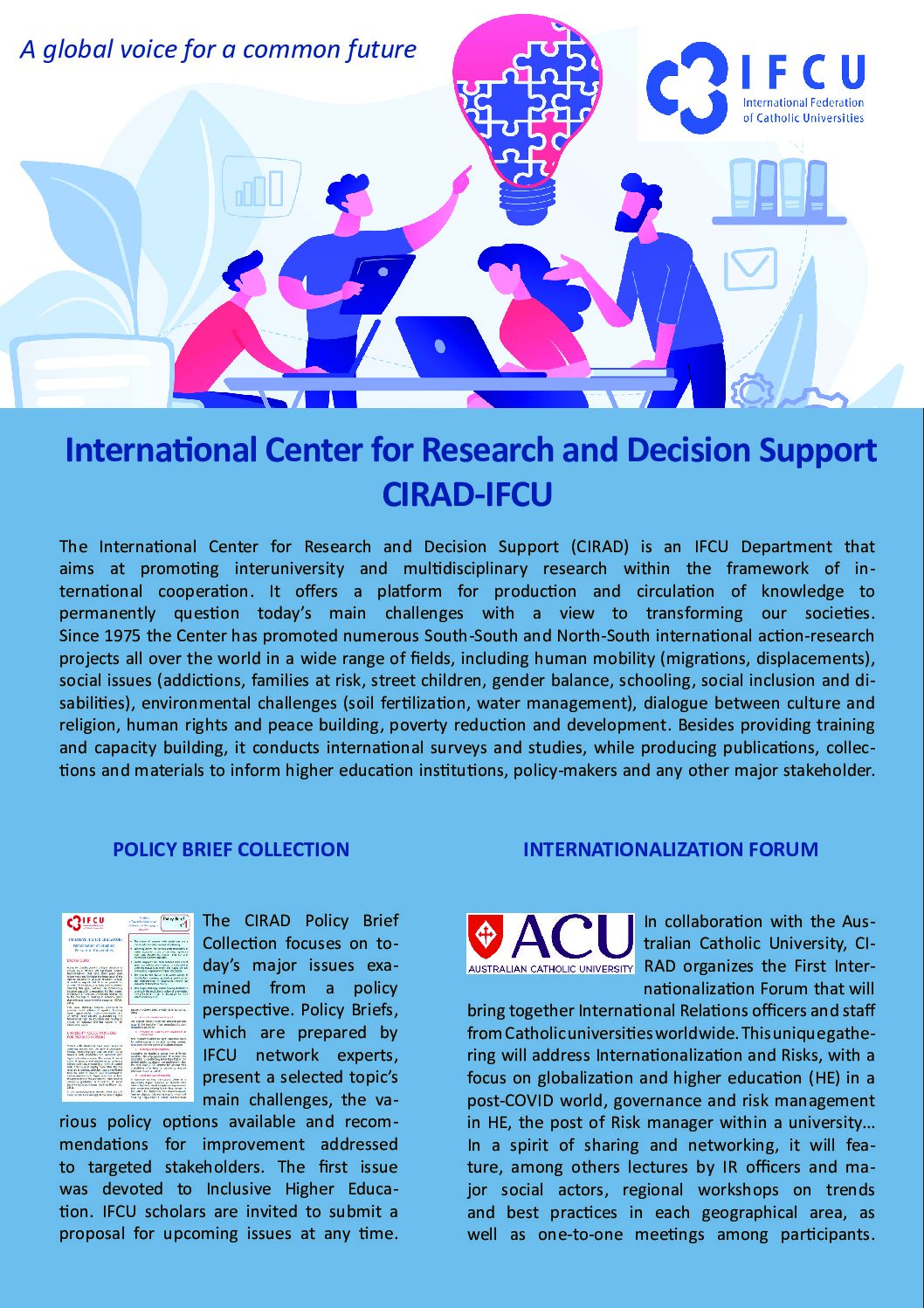Research Group – Families, societies, globalization

The social teaching of Catholic Church has given a large place to the family since the 19th century. This interest has not been denied in recent years. However, the evolution of the contemporary world has upset the family structure, its representations, the places granted to it according to different societies and their cultures. Today, the place of work and its constraints, migratory phenomena, the predominant role accorded to the individual, and the pace of change that challenges conventional transmission processes are some of the phenomena requiring us to think the family in a prospective and multidisciplinary way, in the context of globalization.
Therefore, IFCU supports an international research group “Families, societies, globalization”. This group has historically been created by institutes working on the family topic, mostly European. It is now open to all researchers and research centers, institutions working on this topic. This research group is resolutely multidisciplinary, and structured around ethical questions. It considers the family as a polysemic term, referring to both a living environment and a specific entity with a particular role in social structures. This leads us to work on the transformations affecting family, but also to identify founding invariants. A specific attention is paid to the family’s place in the history of ideas. From a sociological point of view, it highlights its role in the learning of social relations and their contemporary issues, and finally to the State policies that target it.


